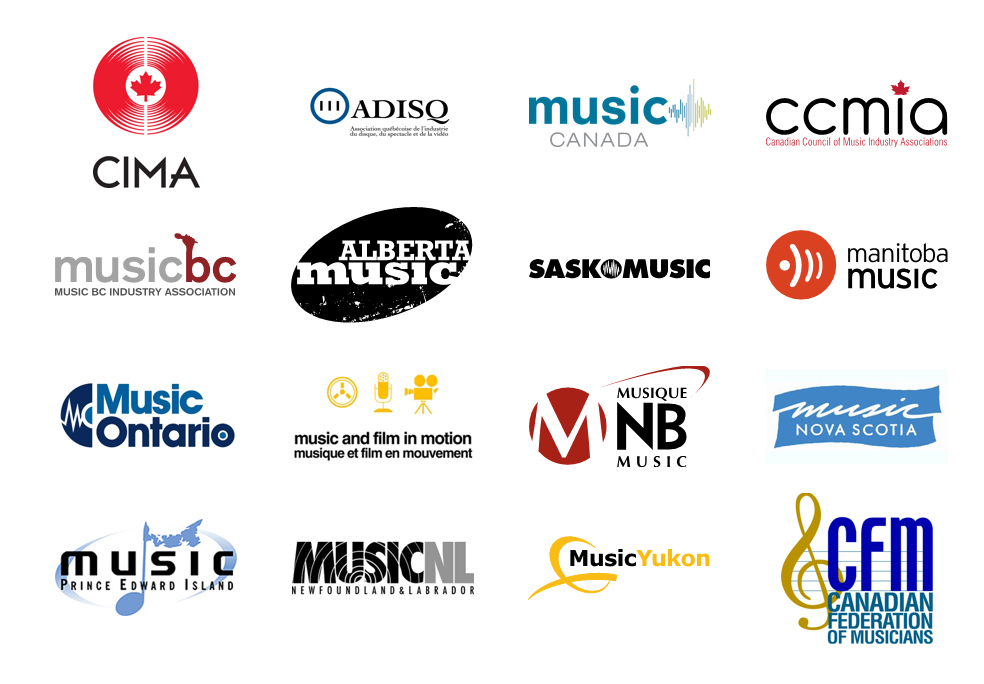Toronto, Dec 6, 2017: Advancements in cross-platform reporting have ushered in a new era of cooperation between Canada’s music and media industries. Developed by Bell Media, Music Canada and Re:Sound, the new process aligns terrestrial broadcast data with digital, ensuring all music industry stakeholders are served with efficiency, transparency, and accountability, while setting a new industry standard for data reporting. With this game-changing initiative by Bell Media, the automation of the existing music content distribution tool allows the industry to streamline sound recording data within the Canadian music ecosystem.
The new system is part of an ongoing project to develop administrative efficiencies by Music Canada and Re:Sound. Through consolidating multiple data sets, maximizing the use of ISRC (International Standard Recording Codes), and other improvements, the project has so far resulted in faster payouts and 28% more revenue for major labels and members of CIMA (the Canadian Independent Music Association).
Beginning with a successful pilot program of the new system by Toronto’s 104.5 CHUM FM in early 2017, Bell Media radio stations are now tracking complete sound recording data including ISRC automatically on new tracks from major record labels and independent label partners. With the elimination of manual processes, the new reporting system has resulted in cleaner data, which significantly benefits all rights holders in the Canadian music industry including artists, background musicians, songwriters, and music publishers, through organizations (SOCAN, CMRRA, SODRAC, etc.) relying on broadcast data to get royalties to rights holders.
“I commend Bell Media, and specifically Randy Lennox, for showing remarkable leadership on this project,” says Graham Henderson, President and CEO of Music Canada. “Thanks to this collaboration, achievements in data efficiency from projects completed by the major record companies and Re:Sound will now yield even greater results, generating savings throughout the royalty chain, while resulting in more dollars in the pockets of creators.”
“As someone with love for Canada’s music industry, I am thrilled by the results of this project,” said Randy Lennox, President, Bell Media. “When Music Canada’s Graham Henderson approached us to help resolve what has been a longstanding issue within Canada’s music industry, it was an easy decision to lend Bell Media’s resources and expertise. The automation of the tracking process establishes international best practices that benefit creators while making the entire system considerably more efficient.”
“At Re:Sound, we only exist for the artists and sound recording owners we represent,” says Ian MacKay, President of Re:Sound. “Ensuring that the absolute best quality data flows through the entire music ecosystem is a huge step forward for rights holders, and will help us (and other organizations) to ensure that we pay the right people as quickly and efficiently as possible. We couldn’t have done this without the strong leadership of Bell Media and Music Canada.”
-30-
For more information:
Siobhan Özege, Re:Sound
sozege@resound.ca
+1 (416) 968-8870 ext 369
Corey Poole, Music Canada
cpoole@musiccanada.com
+1 (647) 808-7359
Renee Dupuis-Macht, Bell Media
Renee.dupuismacht@bellmedia.ca
+1 (416) 384-3154
About Re:Sound
Re:Sound is the Canadian not-for-profit music licensing company dedicated to obtaining fair compensation for artists and record companies for their performance rights. Re:Sound advocates for music creators, educates music users, licenses businesses and distributes public performance and broadcast royalties to creators – all to help build a thriving and sustainable music industry in Canada. For more on Re:Sound Music Licensing, please visit www.resound.ca
About Music Canada
Music Canada is a non-profit trade organization that represents the major record companies in Canada: Sony Music Entertainment Canada, Universal Music Canada and Warner Music Canada. Music Canada also works with some of the leading independent record labels and distributors, recording studios, live music venues, concert promoters, managers and artists in the promotion and development of the music cluster. For more on Music Canada, please visit www.musiccanada.com
About Bell Media
Bell Media is Canada’s leading content creation company with premier assets in television, radio, out-of-home advertising, and digital media. Bell Media owns 30 local television stations led by CTV, Canada’s highest-rated television network; 30 specialty channels, including TSN and RDS, and four pay TV services, including The Movie Network and Super Écran. Bell Media is also Canada’s largest radio broadcaster, with 215 music channels including 105 licensed radio stations in 54 markets across the country, all part of the iHeartRadio brand and streaming service. Bell Media owns Astral Out of Home with a network of more than 30,000 advertising faces in British Columbia, Alberta, Ontario, Québec, and Nova Scotia. Bell Media also operates more than 200 websites; delivers TV Everywhere with its CraveTV and GO video streaming services; operates multi-channel network Much Digital Studios; produces live theatrical shows via its partnership with Iconic Entertainment Studios; and owns Dome Productions Inc., a multi-platform production company. Bell Media is part of BCE Inc. (TSX, NYSE: BCE), Canada’s largest communications company. For more on Bell Media, please visit www.bellmedia.ca.





Music Canada